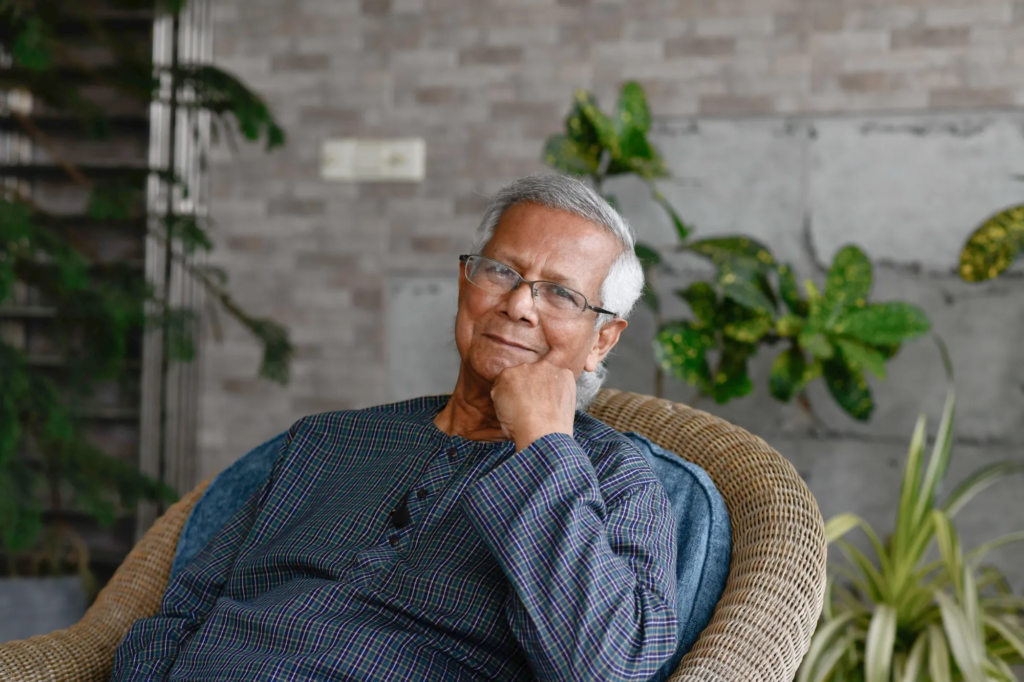Introduction: A Victory for Muhammad Yunus
In a significant development, Nobel laureate Muhammad Yunus has been acquitted in a high-profile corruption case that has garnered international attention. The verdict, delivered by the Dhaka Special Court, marks a major victory for Yunus, who has consistently denied the allegations against him. This article delves into the timeline of events leading to this acquittal, explores expert opinions, and examines the broader implications of the case.

Timeline: The Journey to Acquittal
2006: Muhammad Yunus, founder of Grameen Bank, is awarded the Nobel Peace Prize for his pioneering work in microfinance.
2011: Allegations of financial irregularities at Grameen Bank surface, prompting an investigation by the Bangladesh government.
2013: The Bangladesh Anti-Corruption Commission (ACC) formally charges Yunus with embezzlement and misuse of funds.
2015: The trial begins amid widespread media coverage and international scrutiny.
2017: Testimonies from key witnesses and experts are presented in court, with Yunus’s defense team arguing the charges are politically motivated.
2020: Delays and adjournments prolong the trial, raising concerns about judicial impartiality.
2023: Final arguments are made, and the court reserves its judgment.
August 13, 2024: Muhammad Yunus is acquitted of all charges, with the court citing a lack of credible evidence.
Background: The Charges and Trial
Muhammad Yunus, a globally respected figure in the field of microfinance, faced serious allegations that threatened to tarnish his legacy. The charges included:
Embezzlement: Yunus was accused of misappropriating funds from Grameen Bank for personal gain.
Misuse of Funds: Allegations claimed that Yunus diverted money intended for microfinance programs to other ventures without proper authorization.
Government’s Stance: The Bangladesh government maintained that the charges were based on credible evidence and necessary to ensure transparency and accountability.
Defense’s Argument: Yunus’s legal team argued that the charges were politically motivated, aimed at undermining his reputation and weakening his influence in the country.
Experts’ Insights and Opinions
The acquittal of Muhammad Yunus has sparked a wave of reactions from experts and observers worldwide.
Dr. Amartya Sen, Nobel laureate and economist, commented, “This verdict is a triumph for justice and a recognition of Muhammad Yunus’s invaluable contributions to poverty alleviation and economic development.”
Jessica T. Mathews, former president of the Carnegie Endowment for International Peace, noted, “The case against Yunus was seen by many as a politically charged attempt to discredit a pioneering social entrepreneur. His acquittal restores faith in the rule of law.”
Prof. Rehman Sobhan, chairman of the Centre for Policy Dialogue, added, “The outcome of this trial has significant implications for the civil society sector in Bangladesh. It underscores the importance of protecting independent voices and institutions from political interference.”
Impact and Implications
The acquittal of Muhammad Yunus is likely to have wide-ranging implications for various stakeholders.
For Muhammad Yunus:
- Reputation Restored: The verdict clears Yunus’s name, allowing him to continue his work without the shadow of criminal charges.
- Increased Influence: Yunus’s position as a global advocate for microfinance and social entrepreneurship is strengthened.
For Grameen Bank:
- Institutional Stability: The acquittal helps restore confidence in Grameen Bank, ensuring continued support from investors and donors.
- Focus on Mission: The institution can now refocus on its core mission of providing financial services to the underserved.
For Bangladesh:
- Judicial Integrity: The verdict is a positive reflection on the independence and integrity of the judiciary.
- Political Dynamics: The acquittal may alter the political landscape, with potential repercussions for those who pursued the charges against Yunus.
For the Global Community:
- Validation of Microfinance: The judgment reaffirms the legitimacy and impact of microfinance as a tool for poverty alleviation.
- Support for Social Entrepreneurs: The case highlights the challenges faced by social entrepreneurs and the need for supportive legal and regulatory frameworks.
Conclusion: A Landmark Judgment
The acquittal of Muhammad Yunus marks the end of a long and arduous legal battle, reaffirming his legacy as a pioneering social entrepreneur. The case has not only highlighted the complexities of balancing legal scrutiny with political motivations but also underscored the importance of judicial independence. As the dust settles, Yunus and Grameen Bank can look forward to a renewed focus on their mission to alleviate poverty and empower marginalized communities.
Timeline Recap:
- 2006: Nobel Prize awarded
- 2011: Allegations surface
- 2013: Formal charges filed
- 2015: Trial begins
- 2017: Key testimonies presented
- 2020: Trial delays
- 2023: Final arguments
- August 13, 2024: Acquittal delivered
As the world watches, the story of Muhammad Yunus serves as a powerful reminder of the resilience of truth and justice in the face of adversity.
For Regular News and Updates Follow – Sentinel eGazette
External Sources
FAQs
- What were the main charges against Muhammad Yunus?
- Muhammad Yunus faced charges of embezzlement and misuse of funds from Grameen Bank.
- How did the court justify Muhammad Yunus’s acquittal?
- The court cited a lack of credible evidence in its decision to acquit Muhammad Yunus.
- What impact does the acquittal have on Grameen Bank?
- The acquittal helps restore confidence in Grameen Bank, allowing it to focus on its mission of providing financial services to the underserved.
- How has the international community reacted to the acquittal?
- The international community, including experts like Dr. Amartya Sen, has welcomed the verdict as a triumph for justice and the rule of law.
- What are the broader implications of this verdict for Bangladesh?
- The verdict is a positive reflection on the independence of the judiciary and may have significant political implications in Bangladesh.